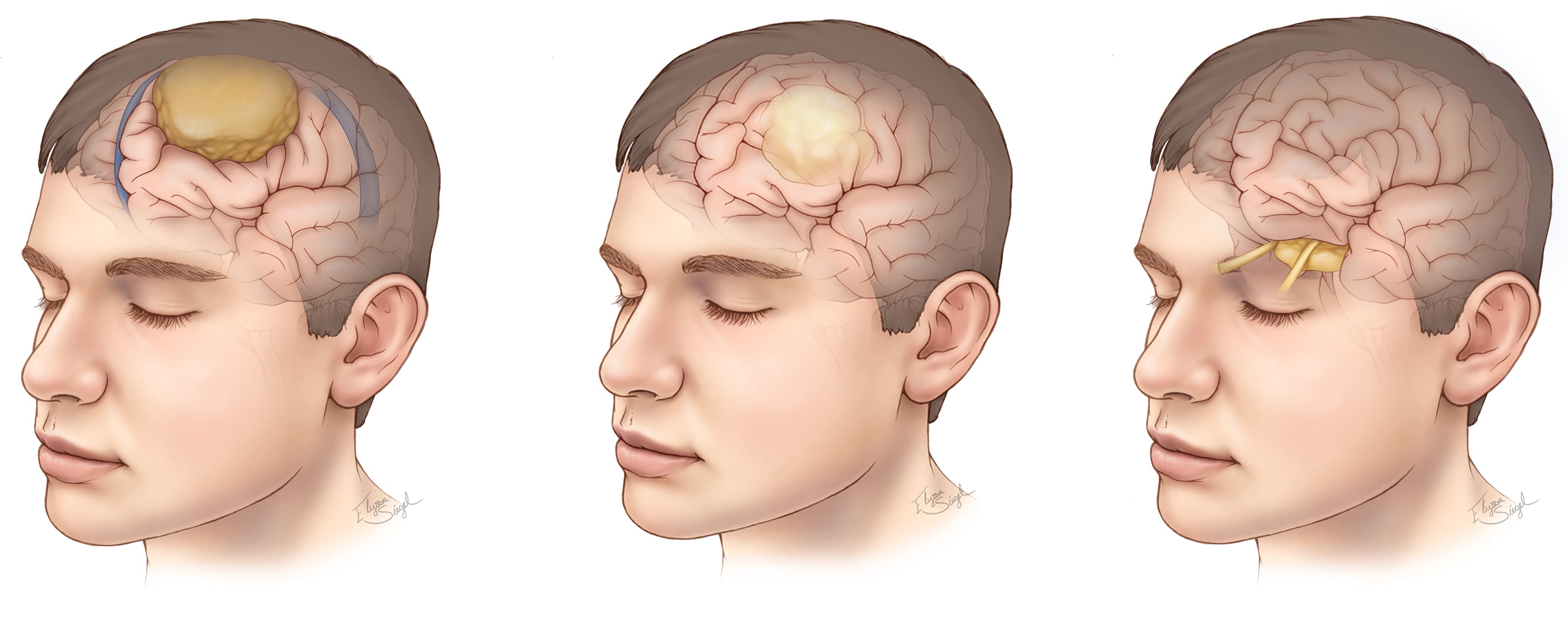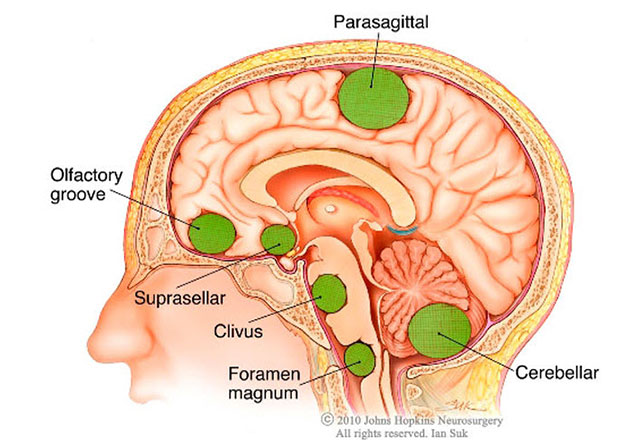

A brain tumor is a mass or growth of abnormal cells in your brain.
Many different types of brain tumors exist. Some brain tumors are noncancerous (benign), and some brain tumors are cancerous (malignant). Brain tumors can begin in your brain (primary brain tumors), or cancer can begin in other parts of your body and spread to your brain as secondary (metastatic) brain tumors.
How quickly a brain tumor grows can vary greatly. The growth rate as well as the location of a brain tumor determines how it will affect the function of your nervous system.
Brain tumor treatment options depend on the type of brain tumor you have, as well as its size and location.
Types
In most people with primary brain tumors, the cause of the tumor isn't clear. But doctors have identified some factors that may increase your risk of a brain tumor.
Risk factors include:
The signs and symptoms of a brain tumor vary greatly and depend on the brain tumor's size, location, and rate of growth.
General signs and symptoms caused by brain tumors may include:
If it's suspected that you have a brain tumor, your doctor may recommend a number of tests and procedures, including:
A number of specialized MRI scan components — including functional MRI, perfusion MRI and magnetic resonance spectroscopy — may help your doctor evaluate the tumor and plan treatment.
Treatment for a brain tumor depends on the type, size, and location of the tumor, as well as your overall health and your preferences. Surgery If the brain tumor is located in a place that makes it accessible for an operation, your surgeon will work to remove as much of the brain tumor as can be done safely. Some brain tumors are small and easy to separate from surrounding brain tissue, which makes complete surgical removal possible. Other brain tumors can't be separated from surrounding tissue or they're located near sensitive areas in your brain, making surgery risky. In these situations, your doctor removes as much of the tumor as is safe. Even removing a portion of the brain tumor may help reduce your signs and symptoms. Surgery to remove a brain tumor carries Treatment.